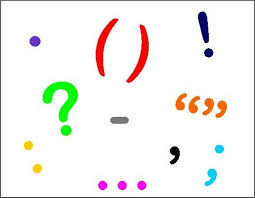Have you ever felt that a person texting you the message “OK.” with a period at the end might be angry at you for some reason? Ever felt that exclamation marks are like these happy-go-lucky fellas who are warm and amiable? We hear you.
Words are not the only things that carry emotion, state of mind, and mood. Punctuation marks are rich in conveying emotion and mood. In fact, on many occasions, punctuation marks can actually cancel out the very meaning a word might denote. For instance, consider how the statement “I’m fine.” is often interpreted to mean that the person is not happy, and not fine at all.. Used in this way, the period cancels out the very meaning of the sentence.
The austere, angry period
A full stop (a period) is the conventional, grammatically correct way to end a sentence. However, in the digital age of texting and emailing where instant communication on smartphones and tablets is the norm, it seems that when the period is used to end a sentence, this somehow unsettles the recipient.
The period is angry and looks way too serious. People using it in texts are more often than not aware of the period’s power to denote anger, frustration, disappointment, and a range of other negative emotions.
Texting and online chatting provide many examples of how the period is generally omitted in normal conversation. So unless you’re new to digital communication or angry at someone, using the full stop may communicate to the other person that something’s not quite as good as you say it is.
So, if you’re responding to an invitation to go out for drinks with, “Sure, that sounds great. I’d love to join you guys.” it might be seen as a reluctance to actually go out with that group of people. While grammatically correct, it’s emotionally incorrect.
The amiable exclamation mark and the … capricious … ellipsis
The period is not the only punctuation mark with a rich emotional side. For many people, the exclamation mark comes across as the nice guy in the punctuation family. While it can definitely be used to add emphasis to both positive and negative statements, these days it’s more often used in a sentence to indicate the sender is positive, warm, and even more sincere. It shows an excitement and benevolence that the angry, grumpy period conspicuously lacks. To prove this, here’s the same text from above, with one important change: “Sure, that sounds great! I’d love to join you guys!”
The notoriously unpredictable ellipsis wears many hats.
In digital communication, an ellipsis can mean a number of things. These three dots resting one next to the other can indicate a statement or provide innuendo. It’s up to the recipient’s interpretation, really. If you send out a message to someone inviting them to join you for drinks, and you get back the message “I’m tired …” then what are you going to think? Is the person saying they’re physically tired? Mentally and emotionally exhausted? Completely fed up with going out for drinks? You’ll probably text back for more clarification.
Are you aware of punctuation marks’ secret, rich life of emotion? How do you use punctuation marks to convey meaning?
Have something to add to this story? Share it in the comments


